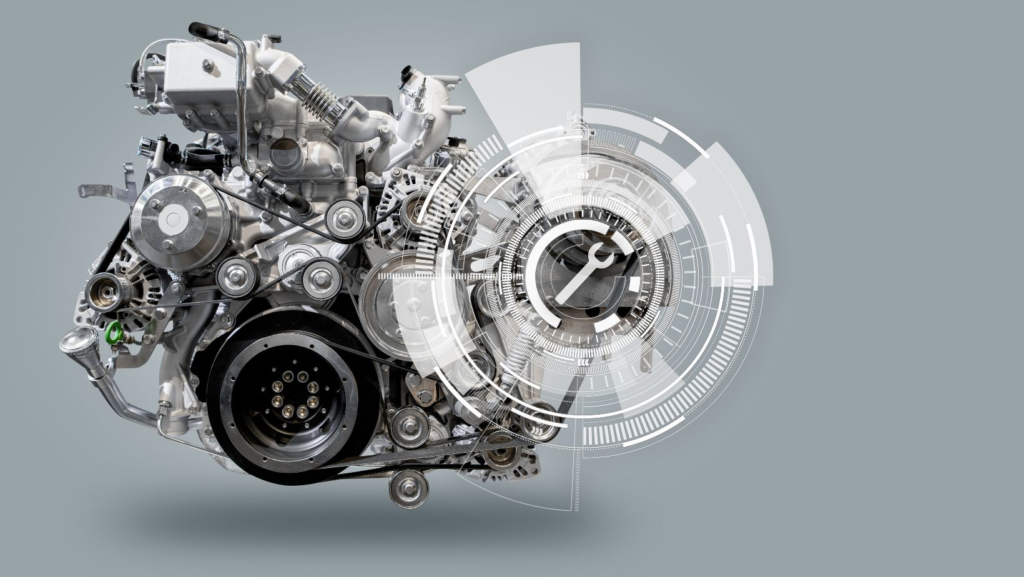
The engine is the heart of your car, and its proper functioning is crucial for the vehicle’s overall performance and reliability. Recognizing early signs of engine trouble can prevent more extensive damage and costly repairs down the road. By staying vigilant and addressing issues promptly, you can ensure your engine operates smoothly and efficiently. Here are some common signs that indicate your car may need engine repairs:

1. Check Engine Light
The check engine light (CEL) on your dashboard is designed to alert you to potential issues with various engine components or systems. While it can indicate minor issues such as a loose gas cap, it can also signal more serious problems like engine misfires, sensor malfunctions, or emission control system failures. If the CEL illuminates and stays on, it’s advisable to have your vehicle inspected by a professional mechanic who can diagnose the underlying cause using diagnostic tools.
2. Unusual Noises
Strange noises coming from your engine can indicate a range of issues, from minor problems to significant mechanical failures. Common noises to be aware of include knocking or pinging sounds, which may suggest issues with fuel combustion or engine timing. Grinding or clicking noises could indicate problems with the starter or alternator, while squealing or screeching noises may point to belt or pulley issues. Any unusual noises should be investigated promptly to prevent further damage to engine components.
3. Decreased Performance
A noticeable decrease in engine performance, such as reduced acceleration, sluggish responsiveness, or difficulty starting the engine, could indicate various underlying issues. These may include fuel system problems, ignition system faults, or issues with engine compression. If your car feels less powerful or struggles to maintain speed, it’s essential to have it inspected to identify and address the root cause promptly.
4. Excessive Exhaust Smoke

Excessive smoke emitting from your vehicle’s exhaust can indicate potential engine problems that require attention. The color of the smoke can provide clues to the nature of the issue:
- Blue or Gray Smoke: Indicates burning oil, which could be due to worn piston rings, valve seals, or a malfunctioning PCV system.
- White Smoke: Could be a sign of coolant entering the combustion chamber, indicating a potential head gasket leak or cracked cylinder head.
- Black Smoke: Suggests an overly rich fuel mixture, often caused by issues with the fuel injectors, air filters, or sensors.
5. Fluid Leaks
Leaks under your vehicle, especially near the engine compartment, should never be ignored. Engine oil leaks can lead to low oil levels, which can cause engine damage over time. Coolant leaks can result in engine overheating and potential internal damage. Transmission fluid leaks can affect gear shifting and transmission performance. Addressing fluid leaks promptly can prevent more significant issues and prolong the lifespan of engine components.
6. Engine Overheating
An engine that consistently overheats or runs hotter than normal temperatures may indicate cooling system problems, such as a malfunctioning thermostat, radiator issues, coolant leaks, or a failing water pump. Ignoring engine overheating can lead to severe engine damage, including warped cylinder heads, blown head gaskets, or even engine failure. If your temperature gauge shows unusually high readings or if you notice steam or coolant leaks under the hood, it’s essential to address the issue immediately.
Conclusion
In conclusion, staying attuned to your car’s performance and recognizing early signs of engine trouble can help prevent costly repairs and ensure your vehicle remains reliable and safe. Regular maintenance, including oil changes, fluid checks, and inspections by qualified mechanics, is essential for detecting and addressing potential engine issues before they escalate. If you notice any of the signs mentioned above or experience unusual symptoms while driving, don’t hesitate to seek professional assistance to diagnose and repair your engine promptly. Taking proactive steps to maintain your engine’s health will ultimately contribute to a smoother, more efficient driving experience and extend the lifespan of your vehicle.








